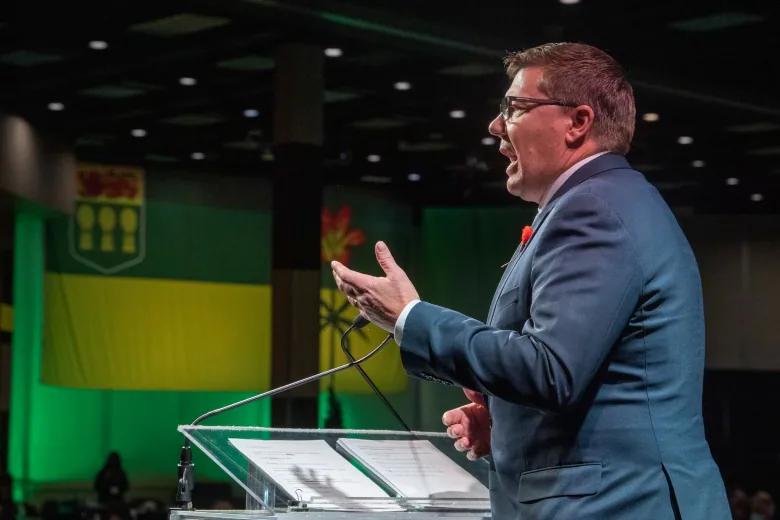Canada’s premiers gather today for two days of meetings in Victoria, British Columbia, where they’re expected to focus on their demand for more health-care funding from the federal government.
“The problems Canadians experienced in accessing health-care services during the pandemic have intensified strains in our health systems that will continue unless the federal government significantly increases its share of the costs of health care,” B.C. Premier John Horgan, this year’s chair of the Council of the Federation, said in a media statement.
“Canadians must have the confidence that their health care systems will provide the services they need. There can be no further delay in having this vital conversation with the federal government.”
The Council of the Federation, the association of Canada’s 13 provincial and territorial premiers, wants the federal government to increase its share of health-care funding from the current level of 22 per cent to 35 per cent, and to maintain funding at that new level into the future.
“It was … 2004 the last time there were any substantial gains made with respect to any increases in the [Canada Health Transfer],” Saskatchewan Premier Scott Moe said last week. “What the provinces are asking for is essentially to have a fair funding partner in the federal government, like it was always intended to be from the very beginning.”
Federal Health Minister Jean-Yves Duclos’ office told CBC News last week that it is committed to funding public health care in Canada, although it didn’t specifically address the premiers’ call for the federal government to cover 35 per cent of costs.
Duclos’ office said it has invested more than $72 billion in health care since the beginning of the pandemic, including $2 billion to help provinces address surgical backlogs.
His office also said it has committed to bilateral deals with the provinces that would mean $3 billion for long-term care, $3 billion for mental health services and $3 billion for home care.
“We have clearly demonstrated that we are willing to do our part in ensuring the sustainability and accessibility of the universal publicly funded health care system that we all cherish as Canadians,” Duclos’ office said in a media statement.
“Canadians aren’t interested in a sterile fiscal debate. Canadians are interested in results: they want care and that is what we want to focus on.”
Long-term funding essential: Horgan
The federal government’s move to fund specific health programs, like long-term and home care, has upset some provinces. They say the federal government should just give the provinces the money and let them decide where it should be spent, rather than tethering funding to specific programs.
“We’re asking for provincial autonomy within the confines of what the Constitution lays out,” Moe said.
Horgan said that targeted funding for specific initiatives does not help provinces plan long-term, or deliver health-care services in the short term.
CBC News: The House11:49Premiers gather for a check-up on Canada’s health-care system
B.C. Premier John Horgan, chair of next week’s premiers’ meeting, sits down with guest host Tom Parry to discuss the push for more federal health-care funding and his own decision to leave politics.
“One-time funding does not help us build the system. It doesn’t help us put in place a human resource strategy,” Horgan told CBC Radio’s The House in an interview that aired on Saturday.
“Instead, we find ourselves, in some circumstances, poaching from each other. Highest bidder gets the most nurses. That’s not how Canada should operate. That’s now how we want it to operate.”
Economic growth and energy security
Horgan said the premiers also will discuss the economic recovery and the cost-of-living crisis. Last week, Moe suggested that conversation would include the rising cost of energy and how the western provinces can, with federal help, begin to address that issue.
Moe said he’ll be asking the federal government to take “a very serious look at policy developments” he claimed are preventing energy production. He said Ottawa hasn’t done enough to engage with the United States to resolve issues like the cancellation of the Keystone XL pipeline.
Canada’s premiers are set to meet this week for the first time in person since 2019. Health care is expected to be one of the top items on the agenda, with hospitals in parts of the country struggling with major staffing shortages.
The pipeline was supposed to bring Canadian oil to U.S. refineries but was cancelled last year by President Joe Biden, who made the project’s termination a key campaign promise.
Moe said his plan for Canadian and North American energy security “includes an east-to-west corridor” for energy. Quebec Premier François Legault has said already that his government would not tolerate an oil pipeline through his province.
Legault has said in the past that his government would tolerate a natural gas pipeline through the province — but his government last year cancelled a liquefied natural gas project and the pipeline that would have supplied it over environmental concerns.
After the July 11 and 12 premiers’ meetings — which are taking place in person for the first time since 2019 — the premiers will address the media and take questions at the Fairmont Empress hotel in Victoria.



